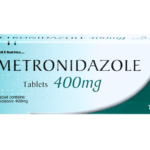Mamcin: Uses, Dosage, Side effects, Interaction

What is Mamcin?
Mamcin is a brand of Amikacin used to treat certain serious infections that are caused by bacteria such as meningitis (infection of the membranes that surround the brain and spinal cord) and infections of the blood, abdomen (stomach area), lungs, skin, bones, joints, and urinary tract. Mamcin is in a class of medications called aminoglycoside antibiotics. It works by killing bacteria.
Antibiotics such as Mamcin will not work for colds, flu, or other viral infections. Taking antibiotics when they are not needed increases your risk of getting an infection later that resists antibiotic treatment.
What special precautions should I follow?
Before receiving Mamcin injection,
• Tell your doctor and pharmacist if you are allergic to Mamcin injection; other aminoglycoside antibiotics such as gentamicin, kanamycin, neomycin, streptomycin, or tobramycin; sulfites; any other medications; or any of the ingredients in Mamcin injection. Ask your pharmacist for a list of the ingredients.
• Tell your doctor and pharmacist what other prescription and nonprescription medications, vitamins, and nutritional supplements, you are taking or plan to take. Be sure to mention the medications listed in the safety section and any of the following: other antibiotics such as amoxicillin (Amoxil, Larotid, Moxatag, in Augmentin, in Prevpac), ampicillin, or penicillin; dimenhydrinate (Dramamine); meclizine (Bonine); or nonsteroidal anti-inflammatory drugs such as indomethacin (Indocin, Tivorbex). Your doctor may need to change the doses of your medications or monitor you carefully for side effects. Many other medications may also interact with Mamcin, so be sure to tell your doctor about all the medications you are taking, even those that do not appear on this list.
• Tell your doctor if you have or have ever had cystic fibrosis (an inherited condition that affects the lungs and digestive system), problems with your muscles such as myasthenia gravis or Parkinson’s disease.
• Tell your doctor if you are pregnant or plan to become pregnant or breastfeed. If you become pregnant while using Mamcin injection, call your doctor immediately. Mamcin may harm the fetus.
How should Mamcin be used?
Mamcin injection comes as a liquid to be injected intravenously (into a vein) or intramuscularly (into a muscle) every 8 or 12 hours (two or three times a day). When Mamcin is injected intravenously, it is usually infused (injected slowly) over a period of 30 to 60 minutes. The length of your treatment depends on the type of infection you have.
You may receive Mamcin injection in a hospital or you may administer the medication at home. If you will be receiving Mamcin injection at home, your healthcare provider will show you how to use the medication. Be sure that you understand these directions, and ask your healthcare provider if you have any questions.
You should begin to feel better during the first few days of treatment with Mamcin injection. If your symptoms do not improve or get worse, call your doctor.
Use Mamcin injection until you finish the prescription, even if you feel better. If you stop using Mamcin injection too soon or skip doses, your infection may not be completely treated and the bacteria may become resistant to antibiotics.
Ask your pharmacist or doctor for a copy of the manufacturer’s information for the patient.
What are the side effects of Mamcin injection?
Mamcin may cause side effects. Tell your doctor if any of these symptoms are severe or do not go away:
• nausea
• vomiting
• diarrhea
• headache
• fever
Some side effects can be serious. If you experience any of these symptoms, call your doctor immediately or get emergency medical treatment:
• rash
• peeling or blistering of the skin
• itching
• hives
• swelling of the eyes, face, throat, tongue, or lips
• difficulty breathing or swallowing
• hoarseness
• severe diarrhea (watery or bloody stools) that may occur with or without fever and stomach cramps (may occur up to 2 months or more after your treatment)
Mamcin may cause other side effects. Call your doctor if you have any unusual problems while taking this medication. If you experience a serious side effect, you or your doctor may send a report to the Food and Drug Administration’s (FDA) MedWatch Adverse Event Reporting program online (http://www.fda.gov/Safety/MedWatch) or by phone (1-800-332-1088).
Mamcin Safety Information
Mamcin may cause serious kidney problems. Kidney problems may occur more often in older people or in people that are dehydrated. Tell your doctor if you have or have ever had kidney disease. If you experience any of the following symptoms, call your doctor immediately: decreased urination; swelling of the face, arms, hands, feet, ankles, or lower legs; or unusual tiredness or weakness.
Mamcin may cause serious hearing problems. Hearing problems may occur more often in older people or in people that are dehydrated. Hearing loss may be permanent in some cases. Tell your doctor if you have or have ever had dizziness, vertigo, hearing loss, or ringing in the ears. If you experience any of the following symptoms, call your doctor immediately: hearing loss, roaring or ringing in the ears, or dizziness.
Mamcin may cause nerve problems. Tell your doctor if you have or have ever had burning, tingling, or numbness in the hands, arms, feet, or legs; muscle twitching or weakness; or seizures.
The risk that you will develop serious kidney, hearing, or other problems is greater if you are taking certain medications. Tell your doctor and pharmacist if you are taking acyclovir (Zovirax, Sitavig); amphotericin (Abelcet, Ambisome, Amphotec); bacitracin; capreomycin (Capastat); certain cephalosporin antibiotics such as cefazolin (Ancef, Kefzol), cefixime (Suprax), or cephalexin (Keflex); cisplatin; colistin (Coly-Mycin S); cyclosporine (Gengraf, Neoral, Restasis, Sandimmune); diuretics (‘water pills’) such as bumetanide, ethacrynic acid (Edecrin), furosemide (Lasix), or torsemide (Demadex); other aminoglycoside antibiotics such as gentamicin, kanamycin, neomycin (Neo-Fradin), paromomycin, streptomycin or tobramycin; polymyxin B; or vancomycin (Vanocin). Your doctor may not want you to receive Mamcin injection.
If you are having surgery, including dental surgery, tell the doctor or dentist that you are using Mamcin injection.
Keep all appointments with your doctor and the laboratory. Your doctor will order certain tests, including hearing tests, before and during treatment to check your body’s response to Mamcin.





